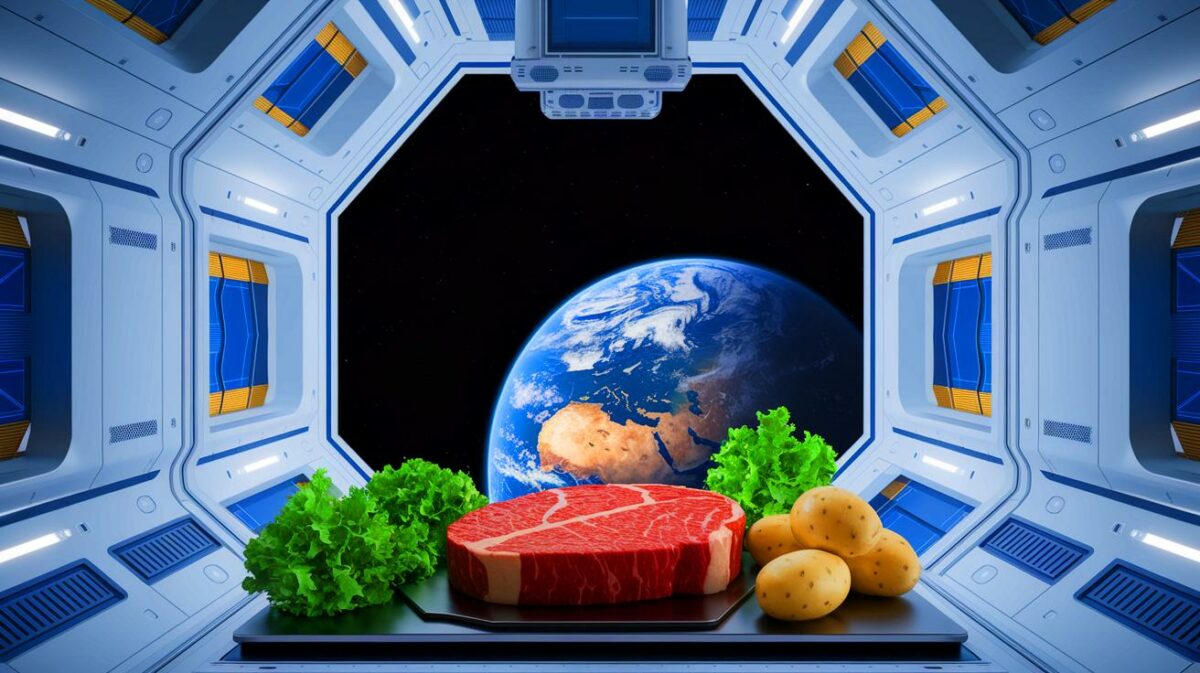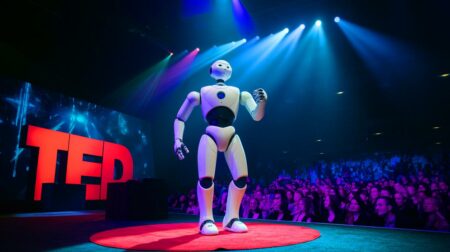| IN A NUTSHELL |
|
The European Space Agency (ESA) is embarking on a groundbreaking mission to revolutionize how astronauts are nourished during their cosmic journeys. By launching a bioreactor into space to produce lab-grown steak and potatoes, ESA aims to reduce the staggering costs of food shipments to the International Space Station (ISS). This ambitious project not only addresses financial concerns but also paves the way for sustainable food production in space, which could be crucial for future interplanetary travel and colonization.
Revolutionizing Space Nutrition: The Bioreactor’s Role
The traditional method of supplying food to astronauts involves costly shipments from Earth, with expenses reaching up to $27,000 per astronaut per day. In response to this economic challenge, ESA has introduced an innovative solution: a space-bound bioreactor designed to produce food directly in orbit. This technology could drastically change the way space missions are provisioned, offering a more sustainable and cost-effective alternative to current practices.
At the heart of this initiative is a process known as “precision fermentation,” where genetically engineered yeast produces essential nutrients. Researchers at Imperial College in London, in collaboration with Bedford-based Frontier Space, have spearheaded this development. By harnessing the power of science to convert “pure energy” into edible substances, the potential to produce complete meals in space is becoming a tangible reality.
Testing the Boundaries: Bioreactor Experimentation in Orbit
The journey of the bioreactor begins with its launch aboard the SpaceX Falcon 9 rocket, encapsulated within a small cube satellite. Once in orbit, the mini-laboratory will conduct experiments to assess the feasibility of generating food components in microgravity. This marks a significant milestone for Europe as it deploys its first commercial returnable spacecraft, Phoenix, to facilitate these tests.
After a brief orbit, the satellite will return to Earth, bringing with it crucial data on the performance of the bioreactor in space conditions. This information is vital for advancing the development of a full-scale bioreactor capable of sustaining astronauts with freshly produced meals during their extended stays in space. Such advancements are essential as humanity sets its sights on deeper space exploration and potential habitation beyond Earth.
The Culinary Challenge: Turning Science into Palatable Space Cuisine
One of the challenges facing this project is transforming the bioreactor’s outputs into appetizing meals. Currently, the products resemble “brick-colored goo,” which does not appeal to astronauts accustomed to freeze-dried or irradiated food prepared by injecting hot water into pouches. However, Imperial College’s master chef, Jakub Radzikowski, is optimistic about overcoming this hurdle.
Radzikowski’s expertise in creating starches and proteins from fungi offers a promising approach to developing a variety of cuisines in space. By refining the bioreactor’s outputs, the team aims to produce nutrient-rich, complex foods that are both visually and gastronomically appealing. This culinary innovation could significantly enhance the living conditions for astronauts, making long-duration missions more comfortable and enjoyable.
Looking to the Future: The Dream of Space-Based Food Production
The ultimate vision for this project extends beyond the ISS. Dr. Aqeel Shamsul, CEO of Frontier Space, envisions a future where factories in orbit and on the Moon produce food for spacefarers. Such infrastructure is crucial for supporting human habitation in space and facilitating sustainable colonization efforts.
As ESA continues to push the boundaries of space nutrition, the potential impact on Earth’s food systems should not be overlooked. The technologies developed for space could inspire more sustainable and eco-friendly practices on our home planet, contributing to global food security and environmental conservation.
With the successful implementation of bioreactor technology, the dream of growing steak and potatoes in space could soon become a reality. This innovation not only addresses the immediate needs of astronauts but also opens up a world of possibilities for future space exploration. As we stand on the brink of this new era, one question remains: How will the lessons learned from space-based food production reshape our approach to food on Earth?
Did you like it? 4.5/5 (20)








Wow, steak and potatoes in orbit! What’s next, a floating buffet? 🍽️😄
This is truly revolutionary! Can’t wait to see how this impacts both space and Earth food production. 🚀